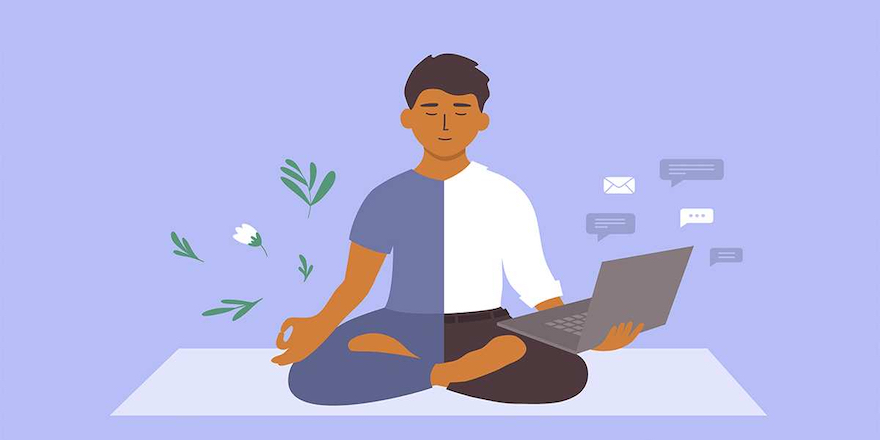
Adjusting to and navigating life as a university student can be challenging. Whilst many students flourish with their new-found independence, the number of students who are reaching out and disclosing their struggles is higher than ever. Triggers can include homesickness, loneliness, study and work pressures, relationship trouble, and money worries.
Tips for boosting your mental health
Check out these tips for improving your mental health while at university:
1. Don't take too much on — try saying no
It can be hard sometimes to say no to social activities and study groups, but it is so important to make time to relax and do something you enjoy. Try and maintain a balance of work-related things and hobbies.
2. Make sure you're getting enough sleep
With tight deadlines and nights out, it’s unlikely that you’ll be getting the recommended eight hours but where possible, try to establish a sleeping pattern. To unwind, put your phone and devices away and settle down with a book or a tv show.
3. Eat as healthily as possible and exercise regularly
Eating healthily will take a bit more planning than just grabbing some food, but making a meal plan and batch cooking could be a simple and cost-effective way of improving your diet. On the topic of exercise, you’ll only need to set aside 20 to 30 minutes to get your blood pumping.
4. Set achievable goals
Mental health struggles can make simple tasks seem overwhelming so don’t overwhelm yourself. If you have work to do, cut it down into smaller chunks and take your time to complete the task. Take regular breaks and chat to your course leader if you need an extension.
5. Keep your living space tidy
Like the old saying, tidy space tidy mind. It's hard to focus when you're living in a jumble, so de-clutter, tidy away mess, and open windows to let the fresh air in. Invest in some under bed storage boxes to pack away books and study resources.
6. Join a club or society
Spending time with like-minded and people and finding a new hobby or doing something you enjoy can be a great mood-booster. It can also provide a sense of community and friendship, which is great if you're feeling lonely or homesick.
7. Drink sensibly
Ever been on a night out and felt that dread the next morning? You’re not alone and there is even a word for it — ‘hangiexty’. Alcohol is a depressant, so keep a check on your consumption levels. If your friends are going on a night out and don’t want to miss out, there should never be any pressure on you to drink alcohol (any or above your limit).
8. Download some apps
There are so many helpful mental health related apps available to help. Some even offer a student discount through Unidays or StudentBeans.
Our top picks:
- Headspace
- Calm
- Calm Harm
- Talkspace
- WorryTree
- Stress and Anxiety Companion
9. Keep in touch
This may be hard to do if you are struggling, but maintaining your social connections is a vital step in boosting your mental health at uni. Perhaps it’s little things like responding to text messages, grabbing a coffee with someone, or even going on a day trip with your friends. Whatever you choose to do, it’ll be a lot more beneficial than keeping yourself and your struggles locked way.
10. Seek support early
Seeking support can be the hardest part of suffering with mental health issues — the thought of being vulnerable and admitting it is difficult for everyone. It’s crucial not to leave things until they get to a crisis point.
Help available at University of South Wales
Here are some of the resources available to you as a student at the University of South Wales:
USW’s Support Services
At USW, we are proud of the amazing work that our Support Services team does and the positive impact they have on students.
Our Wellbeing Advisers are here to talk to you about your wellbeing and mental health, it is a confidential service, where the adviser can explore your needs to help develop an understanding of what service or support may be most suitable for you.
Lecturers
Talk to the academics on your course as soon as possible to let them know you’re unwell. They may be able to offer deadline extensions, flexible ways of working, or other support.
Support network
Your support network could be your flatmates, friends, family, colleagues, or tutor. These are probably the people you know you better than anyone else. They might be able to point you in the direction of support or remember how you’ve boosted your mental health before.
Taking the first steps towards getting support for mental health problems can feel hugely daunting and overwhelming, but ultimately a rewarding experience which can help to unlock channels of support both in day-to-day life and at university which you might be unaware of.
Learn more about University of South Wales